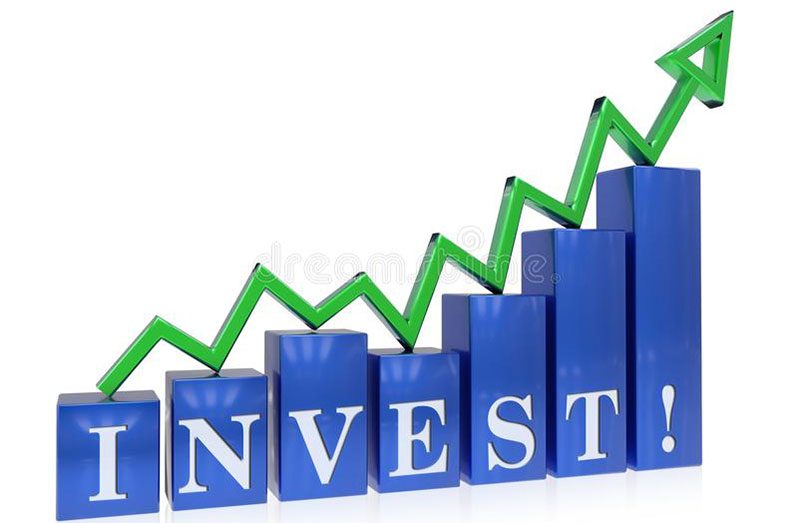(Jamaica Observer) If you’re an investor on the stock market, chances are that you’ve witnessed increased volatility in the price of your stock over the past two years. That’s a result of economic factors, like interest rate hikes, inflation, and higher oil prices, which tend to have a significant impact on stock market performance.
Even on the international scene, the NASDAQ Composite Index — a global electronic marketplace for buying and selling securities — is already down 12.10 per cent since the start of the year compared to the same period in 2021 after struggling to stay in positive territory since the start of the novel coronavirus pandemic.
The Dow Jones Index — a price-weighted measurement of 30 prominent companies listed on stock exchanges in the United States — is also down for the same period at 6.73 per cent. Since the start of the year the main Jamaica Stock Exchange (JSE) Index is down 2.21 per cent.
Corporate manager for group client portfolios and investment strategies at JMMB, Daniel Thompson, told the Jamaica Observer that this is normal behaviour during time of economic, political, or even social turmoil – the equivalent of what investors would call a crisis.
“In times of crisis or uncertainty you generally see a fall-off in asset prices. As uncertainty prevails investors tend to move their money to safer assets, so it’s basically a de-risking of your portfolio until you have a clearer idea of what is happening,” said Thompson.
He explained that safer assets include “treasury bills, short-term assets, and in some more developed markets you’re looking at commodities or housing for low-risk investors”.
But he cautioned investors against panic, noting that “no market goes up or down forever, that’s the truth, that’s the nature of how markets operate”.
With that said, he advised that there are certain strategies investors should apply to ensure they are protected in the event of catastrophe.
“In any time you’re supposed to always take a diversified approach to investing, there’s a place for every asset class in most portfolios. How much of the asset in relation to the portfolio make-up is a function of what your overall investment objectives are. In a time like this you really need to go back to the core reason as to why you’re investing and ask what [your] investment goals are,” Thompson stated.
But he noted that risky assets isn’t necessarily a bad thing. He stressed that it all depends on the investor’s risk appetite and investment objectives.
“That is not to say that there is not a place for risky assets; you just have to ensure that it fits your overall investment objective.”
In the meantime, Thompson highlighted that this isn’t the first time the stock market has been hit by crisis-like events, noting that the market always recovers. He pointed to the 2008 financial crisis, the tech bubble of 1995, the housing sector crisis, and world wars one and two, outlining that the stock market usually rebounds from crisis.
“It suits investors not to treat it like it’s the end of the world, what a crisis says is be cautious and stick to the fundamentals of why you’re investing.”
In terms of recovery outlook, Thompson admitted, “It’s generally quite challenging to determine exactly when the market will recover until you have recovered. They are oftentimes setbacks,” he said.
But he further advised that, “You can judge the posture of key variables, you can look at the actions that central banks and government are taking and that will give you an idea as to what they are trying to accomplish.”
Nevertheless, he admitted that things have already started to pick up pace in the local market.
“We are seeing signs of more activity in the market. We have seen three IPO’s [initial price offering] since the start of the year and within the space of two months. That is an indication that investors are a little more optimistic about the market going forward and companies have more confidence in their ability to raise funds in the capital markets, which is another sign that we’re getting close to business as usual.”
However, he cautioned investors against overreacting, noting that we are not out the woods as yet.
“Going into a crisis there’s the tendency of overreacting and coming out of a crisis there’s the same tendency of overreacting, that’s something that we need to be cognisant of. Yes, things are looking a little bit more positive this year than it was last year, but we are not completely out of the woods yet, we are not seeing where everything is back to normal 100 per cent.”
He highlighted that, although many companies are reporting higher results this year, it doesn’t mean that every company is a good buy. He explained that the results are against the backdrop of two years when economic activity was subdued and company performance dipped.
In short, comparatively, some firms are still not doing as good as or better than they were in pre-pandemic times. Notwithstanding, he said the positive results being reported is good news and a signal that the recovery has started.



.jpg)








